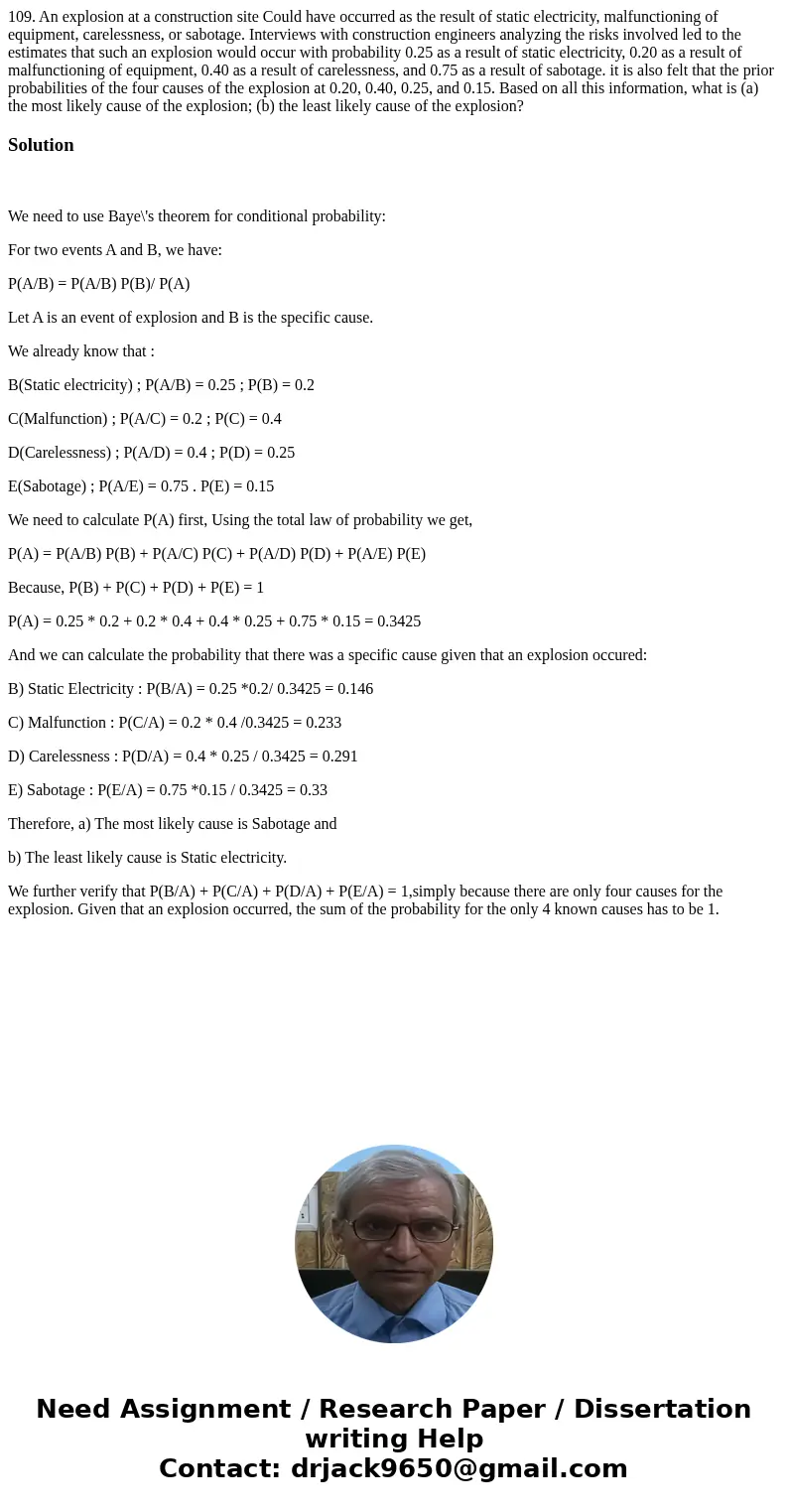109 An explosion at a construction site Could have occurred
Solution
We need to use Baye\'s theorem for conditional probability:
For two events A and B, we have:
P(A/B) = P(A/B) P(B)/ P(A)
Let A is an event of explosion and B is the specific cause.
We already know that :
B(Static electricity) ; P(A/B) = 0.25 ; P(B) = 0.2
C(Malfunction) ; P(A/C) = 0.2 ; P(C) = 0.4
D(Carelessness) ; P(A/D) = 0.4 ; P(D) = 0.25
E(Sabotage) ; P(A/E) = 0.75 . P(E) = 0.15
We need to calculate P(A) first, Using the total law of probability we get,
P(A) = P(A/B) P(B) + P(A/C) P(C) + P(A/D) P(D) + P(A/E) P(E)
Because, P(B) + P(C) + P(D) + P(E) = 1
P(A) = 0.25 * 0.2 + 0.2 * 0.4 + 0.4 * 0.25 + 0.75 * 0.15 = 0.3425
And we can calculate the probability that there was a specific cause given that an explosion occured:
B) Static Electricity : P(B/A) = 0.25 *0.2/ 0.3425 = 0.146
C) Malfunction : P(C/A) = 0.2 * 0.4 /0.3425 = 0.233
D) Carelessness : P(D/A) = 0.4 * 0.25 / 0.3425 = 0.291
E) Sabotage : P(E/A) = 0.75 *0.15 / 0.3425 = 0.33
Therefore, a) The most likely cause is Sabotage and
b) The least likely cause is Static electricity.
We further verify that P(B/A) + P(C/A) + P(D/A) + P(E/A) = 1,simply because there are only four causes for the explosion. Given that an explosion occurred, the sum of the probability for the only 4 known causes has to be 1.

 Homework Sourse
Homework Sourse